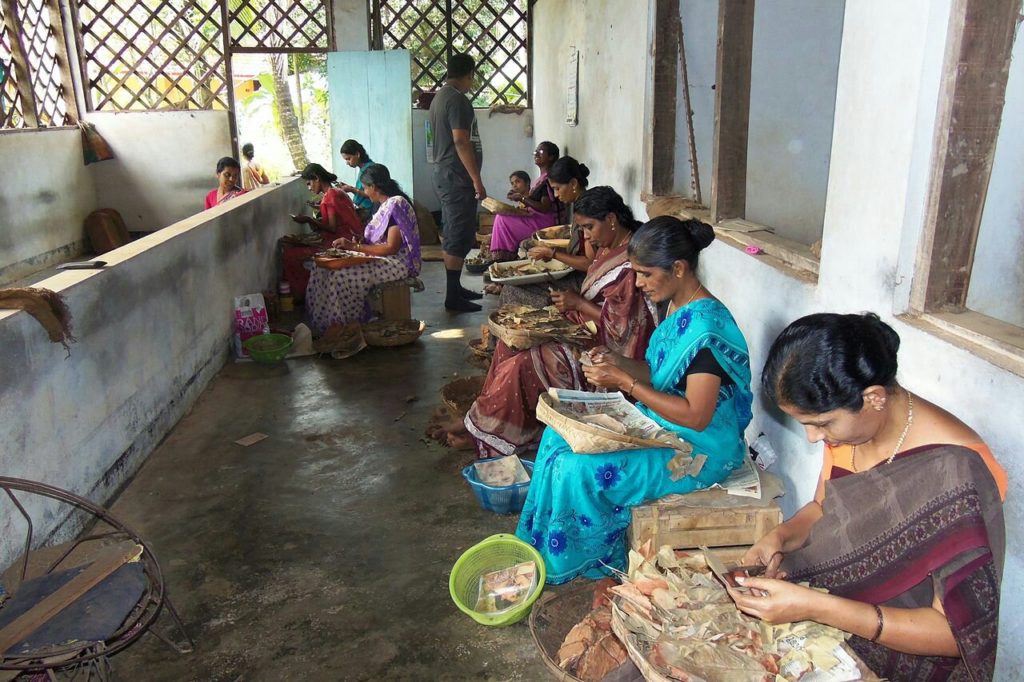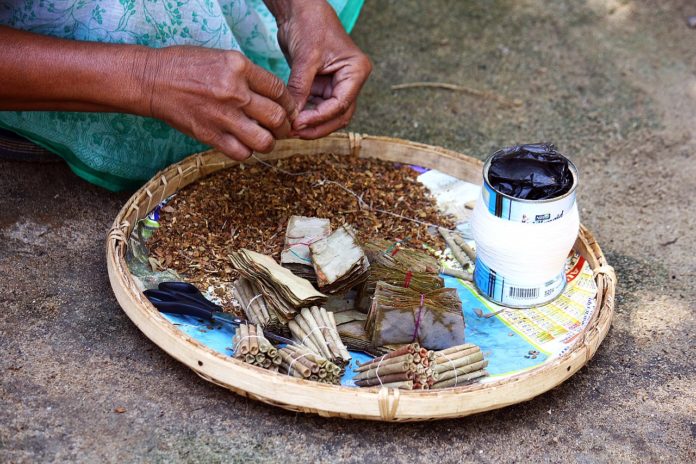Study by Public Health Foundation of India with WHO support recommends ban on bidi rolling in homes
Citing exploitation of bidi workers, a new study has recommended that rolling bidi in homes should be prohibited and all bidi manufacturing units should be registered.
The study “Bidi Industry in India: Output, Employment and Wages” was conducted by the Public Health Foundation of India (PHFI) with support from World Health Organization (WHO) Country Office for India. Bidisare the most popular form of smoked tobacco products in India.

Eight percent of Indians aged 15 years and above smoke bidis according to the Global Adult Tobacco Survey (India) 2016-17. When India was trying to introduce larger pictorial warnings on tobacco packs, concerns about bidi workers had been one of the stumbling blocks but the new study shows they are among the most exploited.
Eight percent of Indians aged 15 years and above smoke bidis according to the Global Adult Tobacco Survey (India) 2016-17.
Despite being scientifically proven to be more hazardous to health than cigarettes, bidis are highly under-taxed in India. Moreover, 99.9% of the bidi industry in India is in the unregistered sector, and as a result, remains unregulated.
Majority of bidi rollers are women and children who are subjected to poor working conditions which adversely affects their health and make them prone to respiratory illness.
Key findings of the study:
- The average annual wage of a worker engaged in registered bidi manufacturing in 2010–2011 was only 17% of the average annual wage of persons engaged in other manufacturing sectors.
- The bidi industry in India contributes only 0.65% of the gross value added (GVA) by the entire manufacturing industry and its contribution to the national economy is insignificant.
- Despite a steep increase in profits accrued by the registered bidi manufacturing industry between 2005-06 (INR 1.73 billion) and 2010-11 (INR 12.81 billion), the wages earned by bidi workers have declined between 2000-01 and 2010-11.
- A majority of workers in the bidi industry are contractual workers, who are paid the least wages.
- Their wages have been declining over the years in comparison to the managerial staff, whose wages have been increasing over the same period. Further, despite there being double the number of women workers in the bidi industry as compared with men, they earn 30% lower wages as compared with men.


